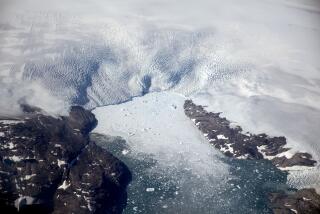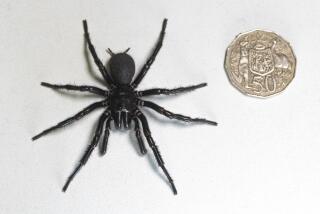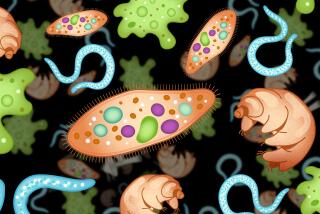Antarctica’s Lake Vostok holds hidden menagerie of microbial life
Antarctica’s Lake Vostok doesn’t seem like the most hospitable home on the planet for any kind of life. Trapped under a glacier 2.3 miles thick, it’s subject to extreme pressures, extreme cold, extreme heat (possibly from hydrothermal vents) and lack of light. And yet scientists studying ice cores from the sub-glacial lake have discovered 3,507 distinct genetic fragments indicating a remarkable diversity of life under the ice.
The findings, published by the journal PLOS ONE, show that the Antarctic lake -- the largest subglacial lake in the world, and the seventh largest overall in volume -- may be home to a complex ecosystem, and could fuel the hopes of researchers looking for alien life on other worlds, such as Jupiter’s icy moon Europa.
Researchers from Bowling Green State University in Ohio examined ice core samples pulled from the ice covering the lake. Over time, water from the lake freezes onto the bottom of the glacier, serving as a chronological layer-by-layer record of the lake’s history.
The researchers sectioned, melted and examined the cores’ contents, discovering small cells, cell fragments, viruses and RNA and DNA fragments. Of the genetic sequences for potentially 3,507 organisms they found, they were able to classify 1,623 of those sequences to known a known genus (and in some cases, species). Most of the sequences, about 94%, were from bacteria, but 6% were eukaryotes, some of them multicellular. (A remaining two of the sequences were from a group of single-celled organisms called archaea.)
The critters belonging to these DNA fragments could have filled a microscopic menagerie. Some needed oxygen-rich environments while others did well in oxygen-poor ones. Some liked extremely salty spots, some thrived in extremely cold places and some preferred the extreme heat. Some liked highly alkaline environments while others liked the opposite -- highly acidic ones.
Some even appear to have originated in fish gut microbiota -- which could mean that there’s even more complex life swimming under the ice.
“Over 35 million years ago, Lake Vostok was open to the atmosphere and was surrounded by a forested ecosystem,” the authors wrote. And until about 15 million years ago, airborne organisms were probably still floating into exposed spots in the lake, injecting more diversity before it became fully sealed in ice.
That diversity may continue now, even under the ice, the researchers said.
“Lake Vostok might contain a complex web of organisms, zones and habitats that have developed over the tens of millions of years of its existence,” they wrote.







